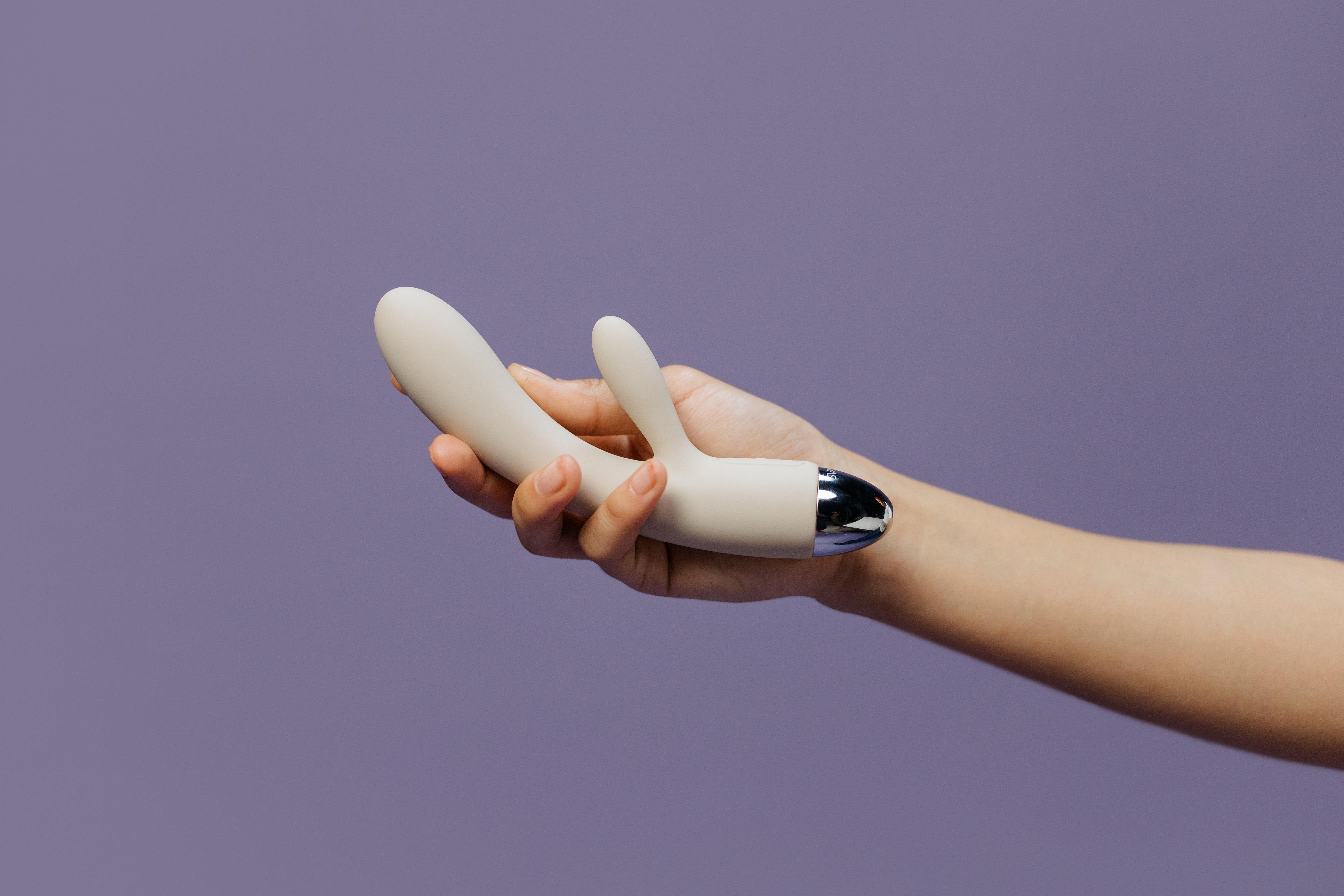The 3 V's: Vaginas, Vaginismus and Valentine's Day
Creative duo, Debbie and Mairi, share the BTS of the provocative, straight-talking campaign 'Let's Open Up' for female-founded sexual wellness brand HANX.
Being in a creative partnership, we’ve had our fair share of uncomfortable conversations.
We’ve been a creative team for over a year now - and you couldn’t meet two folk more opposite. One has a cat named after the protagonist from Alien, the other has one named after a 90s Eastenders character. One has a love for Love Island and the other Pride and Prejudice.
We'll let you guess who’s who.
What we do have in common is the need to shine a light on matters close to our hearts, and to make work we are proud to put our names on. It doesn’t matter who’s throwing the curve ball ideas, we’ve learned you’re both on the same team. Which is what we reminded ourselves when we sat down to throw around ideas for a campaign about vaginismus.
What is Vaginismus?
Vaginismus is a debilitating condition that can make everything from tampon use to penetrative sex painful or even impossible. It’s the equivalent of your body saying, “not tonight, Satan.” Despite thousands suffering from it, there is a vacuum of information out there. And unlike ‘the little blue pill’, it’s not a household name - not yet, at least.
Let's Open Up Campaign
It's already frowned upon for women to talk about sex. It’s even harder to talk about not being able to have penetrative sex. So we got our heads together and ‘Let’s Open Up’ was born; a provocative OOH campaign with HANX, to make those seeing the ads as uncomfortable as those with vaginismus feel. HANX is a female-founded brand smashing taboos around sexual and intimate health so they were the perfect valentine partner to launch our campaign with.
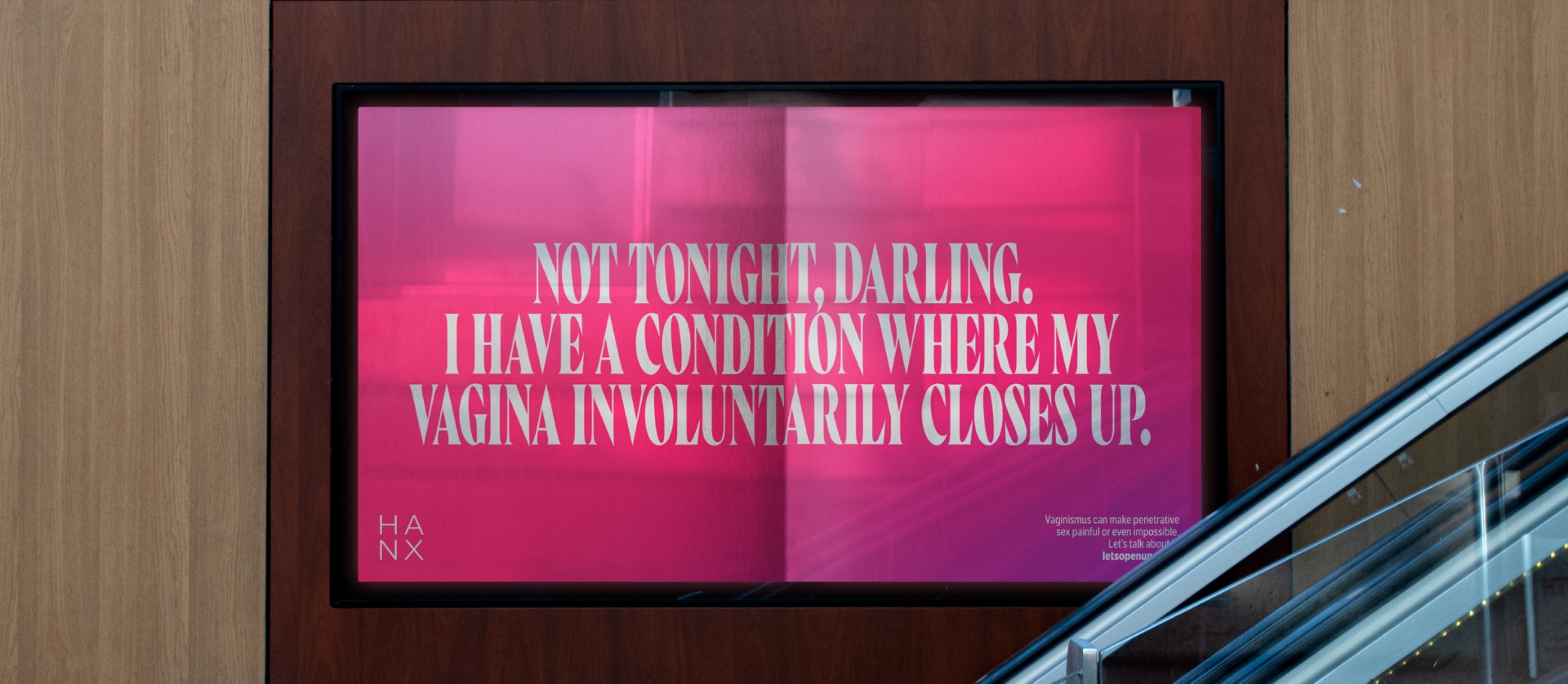
The ads directed people to the 'Let's Open Up' website with practical advice for how to ‘open up’ to partners and healthcare professionals.
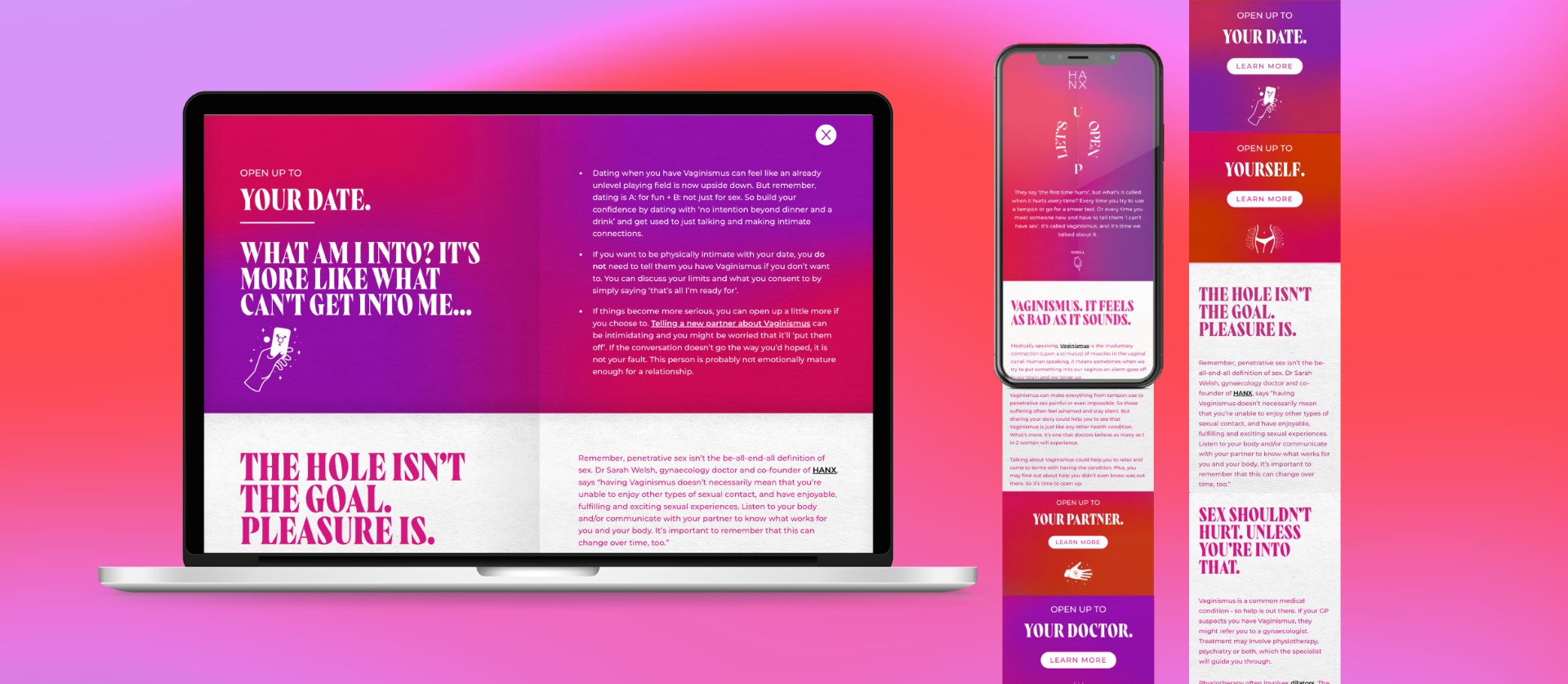
And we supported the billboards with some straight-talking Social and a few ‘inverted Valentine’s Day’ card direct mailers. Because what better day to encourage people to say how they truly feel than V-day?
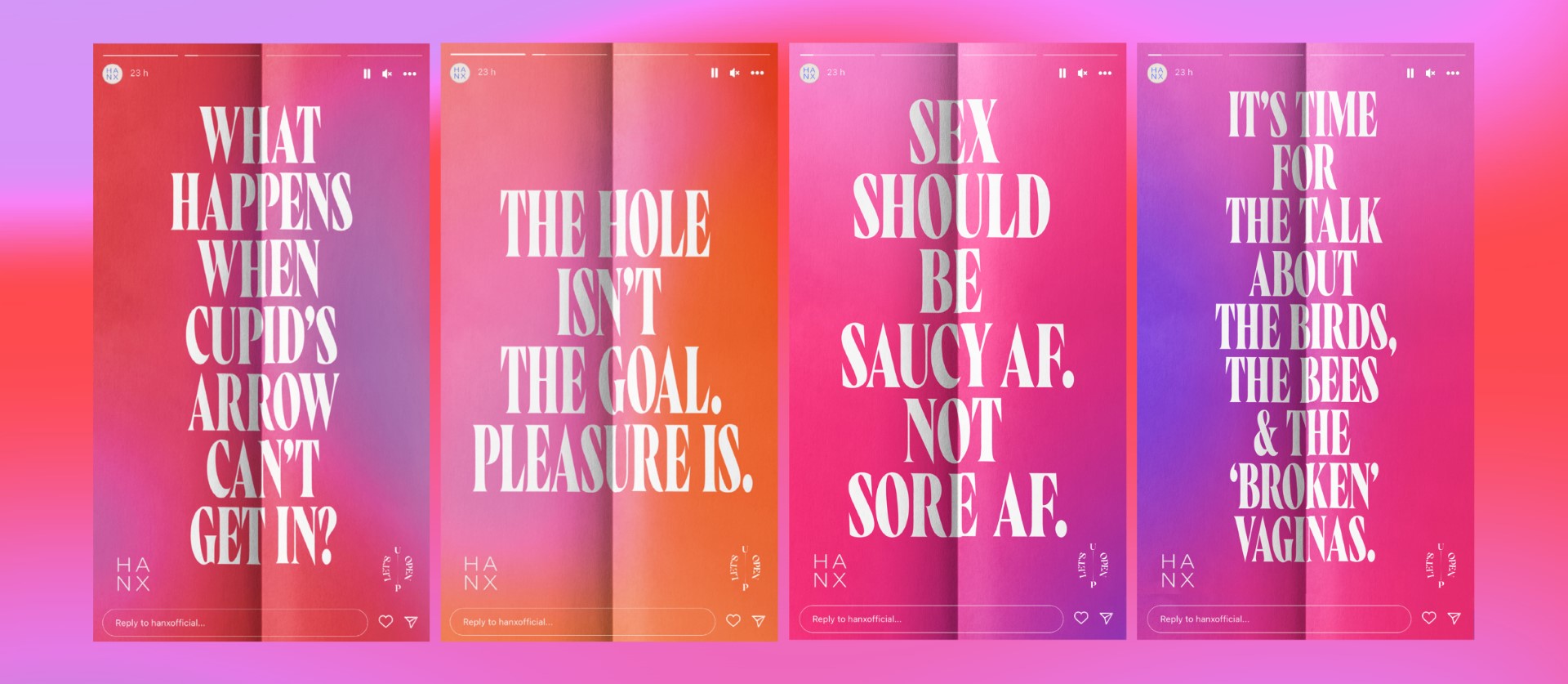
We’d created a women’s health campaign that highlighted the importance of uncomfortable but necessary conversations. Speaking of which…we then had to present the idea to our Creative Directors.
Sitting on the mezzanine floor of our office, we all stared at a poster with the headline:
They say size matters. It doesn’t when nothing can get in.
Our CD paused, taking in the copy with that silence that every creative knows too well. We both gulped. Then to our relief, he said:
‘Nothing’ isn’t the right word.
Should it be a teeny one? we asked.
‘That’s it. ‘They say size matters. It doesn’t when ‘even a teeny one’ can’t get in.’
We had just had a semi-formal discussion with our bosses about the best way to describe problems with penetrative sex. Something that nobody wants to discuss with their boss. Nobody.
It was the first of many uncomfortable conversations. But not the last.
A friend asked what we had been working on. Normally our response would involve a fluffy bird that frequents the whisky world or a famous fizzy orange drink. So when the response was “a campaign about the involuntary contraction of muscles in the vaginal canal, which can make sex really painful”. To our surprise, her eyes welled up. She had it, and she didn’t even know it was a medical condition. For years she had just believed there was something ‘wrong with her’ and was too afraid to talk about it.
As we presented the campaign to wider teams and friends, similar responses mounted up.
I used to have that.
My friend has that.
Is that what that’s called?
No one had ever talked about it until we brought it up - a common theme in women's health where silence is all too often the prescription.
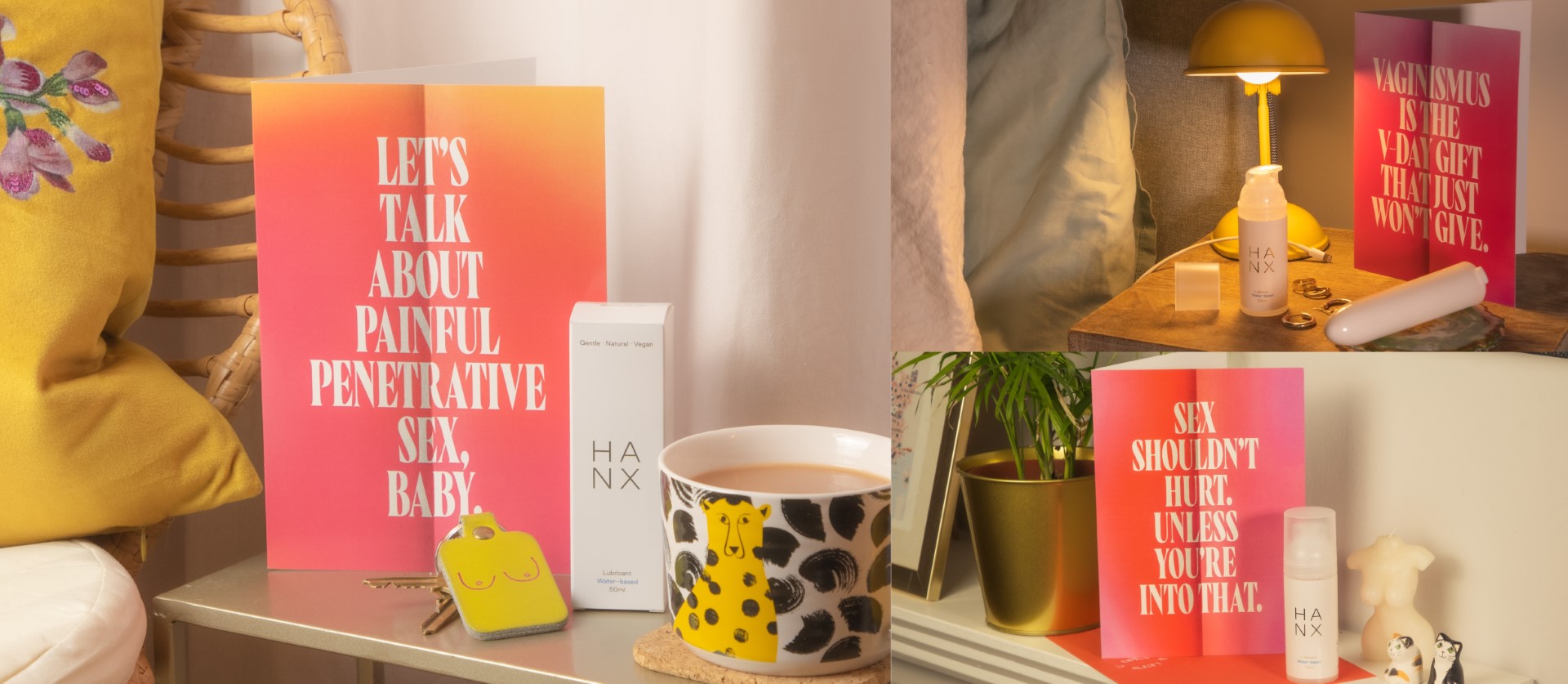
These liberating conversations reminded us why we became creatives in the first place. We can help to break down stigmas and have frank, inclusive conversations about our bodies. Not just ‘to be provocative’, but to make it easier to talk to our partners, midwives, doctors, friends and friends-with-benefits. To make it as easy to talk about women’s health conditions as it is to say ‘I have a migraine’ or ‘I’ve broken my leg.’
There’s still a long way to go in breaking down stigmas. And it’s a journey we’re not on alone. It’s been empowering to hear women talk more freely about vaginismus and to help aid that conversation with a bespoke website and some straight-talking OOH. But it’s bigger than just one campaign - this feels like the start of real change culturally.
We’re starting to see more conversations about endometriosis, smear tests, period poverty and pleasure in the media. But we need to keep opening up. Let’s have uncomfortable conversations about menopause, infertility and miscarriages. With our friends. Our bosses (sorry guys, we’re back). And with our partners - even if it's just our creative ones.
All the love,
Debbie Morgan, Art Director
Mairi Wilson, Copywriter


